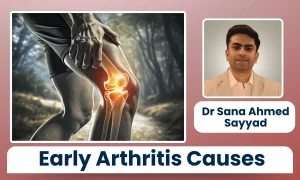Many fear the transition from middle to late adulthood, but it doesn’t need to be an unpleasant one.
Healthy aging begins with adopting lifestyle habits that promote health: nutritious diet, adequate sleep, physical activity and socialization are essential. Preventive health screenings and medication management should also be pursued regularly.
Staying positive and finding meaning are also integral parts of aging gracefully.
Regular Exercise
People often lament the loss of youthful looks as they age, yet one of the main ramifications of aging can be its debilitating effects: loss of strength, balance, and flexibility. Regular physical exercise can slow these declines to help preserve functional independence for longer.
Regular physical activity reduces the risk of chronic diseases like heart disease and diabetes while improving mood, energy, sleep quality and self-esteem. It also enhances quality of life in older age by relieving depression, stress and pain while increasing cognitive functions such as memory.
Studies have revealed that physical activity of any sort was found to contribute to healthier aging trajectories and slow the decline of health and functioning among older adults – even among those starting from lower starting points.
Adequate Sleep
Sleep is an integral component of human health and should be seen as one of the cornerstones of physical wellbeing. Adequate rest can provide a protective factor against cardiovascular disease, diabetes, and obesity65 and has also been linked to more frequent adoption of healthy lifestyle behaviors like exercise and nonsmoking.
Common misperceptions about graceful aging include looking younger and preventing wrinkles, but that’s only half the story! Staying physically active, making healthy food choices, getting adequate rest and seeing a doctor regularly for screenings will all contribute to gracefully aging from within – you won’t only feel your best but have more energy for enjoying life too! Reaching these goals will help you age gracefully from within out – helping you age beautifully from every aspect.
Social Interaction
Some believe that maintaining strong social bonds is integral to successful aging. Indeed, Harvard Medical School Nurses’ Health Study demonstrated that those with higher levels of social integration enjoy superior mental and physical health than those who lack it.
Of course, declines in physical, sensory, and cognitive function can occur as we age; however, life span developmental theories of socioemotional development suggest otherwise. Research on older adults indicates their close social connections become more satisfying over time and experience fewer negative emotions when confronting difficult situations such as caregiving or grief. SIM predicts that social partners react positively toward elderly individuals by responding with behavior which reduces tension leading to positive social experiences for all concerned parties.
Dental Health
Caretaking of one’s teeth should be prioritized at every age, but especially as people approach retirement age. Regular flossing and avoiding sugary foods, beverages and tobacco can all help protect dental health while seeing your dentist for regular cleanings and evaluations can ensure optimal dental wellbeing.
Oral health and cardiovascular wellness are closely intertwined. When gum infections remain untreated, bacteria may enter the bloodstream and increase your risk for heart disease or stroke.
Ageing populations worldwide are at greater risk of chronic medical conditions and polypharmacy that contribute to decreased salivation or even tooth loss and poorer masticatory function, often with an accompanying decrease in saliva. While preventable and treatable treatments exist for these issues, their neglect has caused disability-adjusted life-year losses to be elevated significantly.







More Stories
The Intersection of Metabolic Health and Circadian Biology for Shift Workers
Practical Breathwork Protocols for Managing Specific Anxiety Disorders
Financial Wellness Strategies and Mental Models for Healthcare Professionals